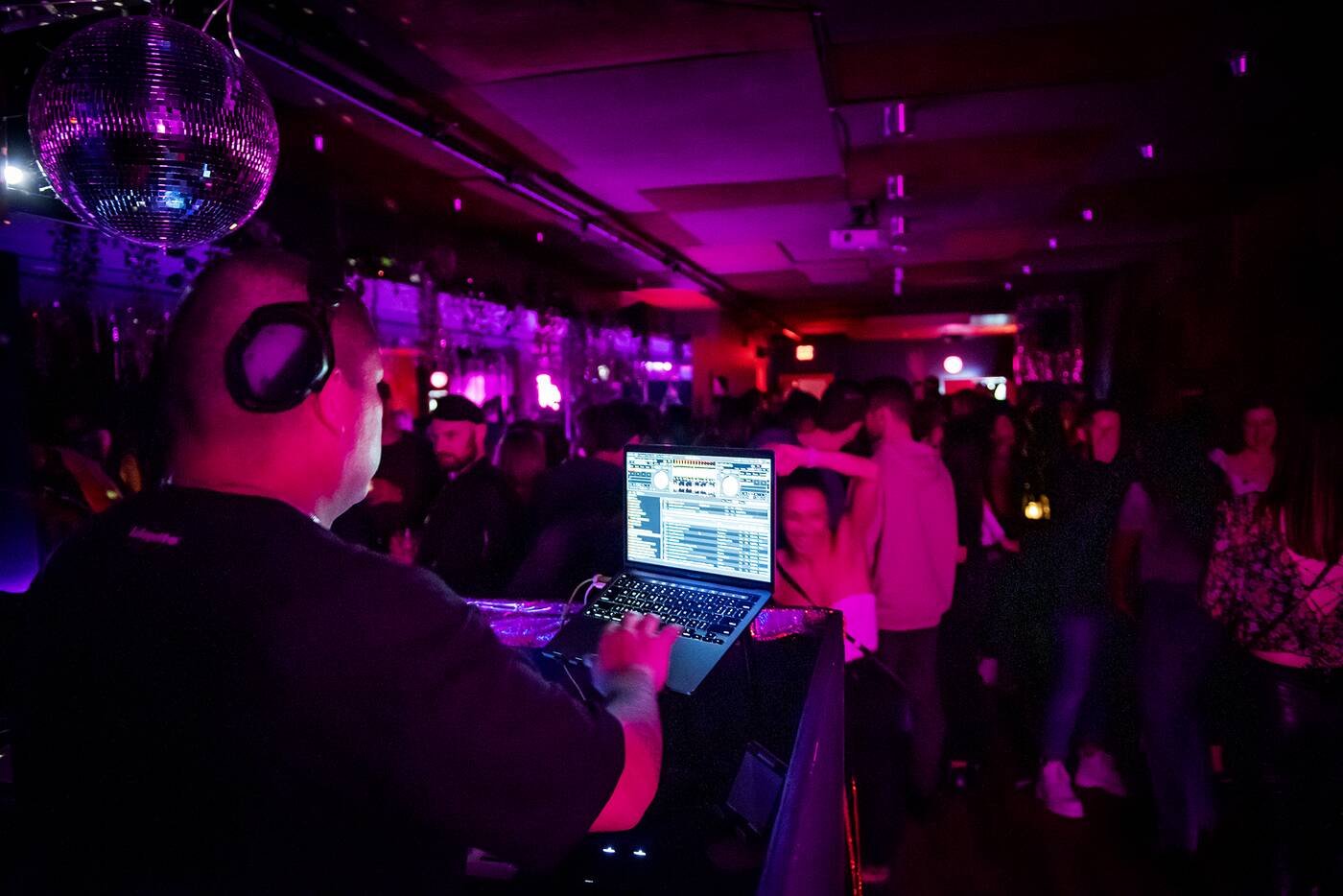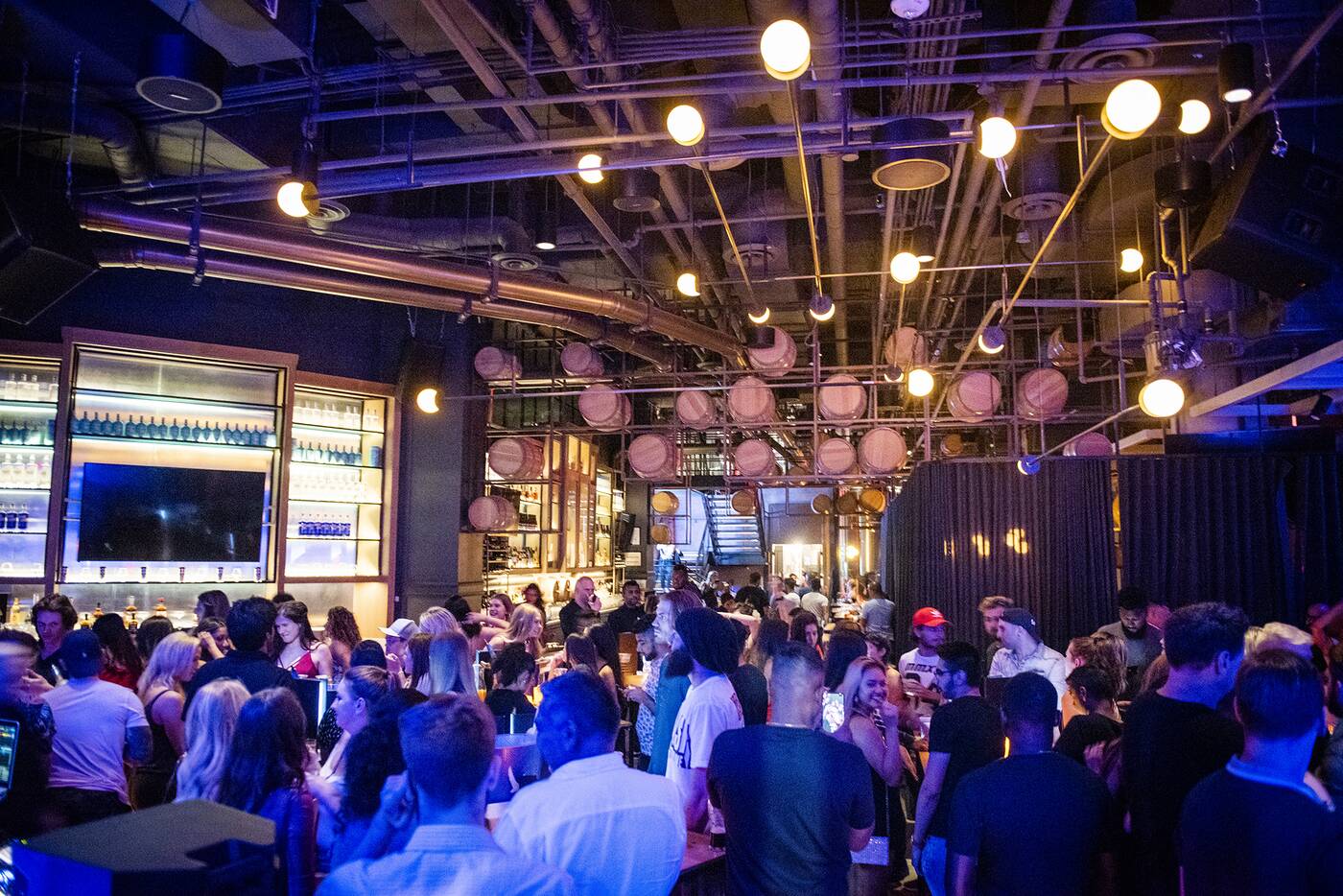
What Toronto can learn from Montreal's nightlife scene
Over the past two years, we've seen Toronto's nightlife scene blossom once again as a new generation of organizers, clubs and collectives come to life in the city.
While Toronto's scene is growing, we are still revitalizing our nightlife from past scenes that died out. Party collectives, clubs and bars have rebuilt the city's nightlife, but we still have a lot of room to grow.
Even though Toronto was recently hailed Canada's party capital, Montreal has historically and continues to provide a diverse nightlife. If Toronto has one Montreal has over a dozen.
Toronto can learn a lot from Montreal's well established nightlife.
Diversity in both parties and scene
The major problem that is consistently being discussed in Toronto is lack of venues and space to host events, and the cost of them. With the rise of condos and over gentrification of historical venues, the city lacks the space to host.
However, with the existing spaces in the city there's a major problem when it comes to providing a diverse array of nightlife options. In Toronto, it can really be broken down to four things; a bar turned 'club', nightclubs, restaurants and (if you're lucky to find one) a rave.

Hail Mary is a popular nightclub on College St. Photo by Hector Vasquez.
Bars, collectives and clubs such as JUICE, Pep Rally and spots along the College and Dundas strip are at the center of nightlife in Toronto. But there's a lot that we're lacking that both residents and organizers have noticed.
What Toronto can learn from Montreal is to be way more experimental with their nightlife. While, yes, access to spaces and affordability of those spaces is a major factor,a plethora of options allows for more diverse nightlife.
To break it down, Montreal nightlife can be dissected into different areas much like Toronto. However, the city has the ability to bring the most niche of scenes and genres of music and allow them to thrive.
If you end up in the Mile End in Montreal, a staple like Datcha has become a household name; however, new bars and venues are emerging that immerse the Quebecois and Anglo scene.
Nouvel Etablissement is a techno bar and club in Mile End that has grungy art, heavy techno and cage dancing. If you're in the Plateau, Systeme offers deep house, and Barbossa brings in a younger crowd with cheap options and dancing.
Tn Chinatown, the iconic restaurant Fleur & Cadeaux comes with a vinyl bar, Sans Soleil, that's hidden underneath.
What really puts Montreal on the map for nightlife is how it allows interdisciplinary spaces to coexist with nightlife. Montreal has many multi-faceted spaces that function as artist studios, dance floors, spaces for rooftop DJ sets and more.
Groups such as Society of Arts & Technology (SAT) host major nightlife events, from art installations, terrace performances and guest DJs alongside Montreal collective Home Grown Harvest.
Collective Shift Radio also have a grasp on the nightlife scene, replicating Europen-styled DJ set ups.
Warehouses also dominate nightlife, with Expose Noir hosting 8 to 24 hour techno events in post-industrial warehouse venues such as an old factory in Griffintown when hosting Fonderie Darling.
Toronto has some of its own warehouse spaces, mostly ones in and around Dupont Avenue, yet most are underutilized or primarily serve as art spaces.
Collectives dominate the city
Toronto is in its rebirth stage and is in the process of regaining its lost relationship with party collectives. Montreal, however, never let it go.
Queer collectives have Montreal in a tight grasp, with DJ Mossy Mugler's Hauterageous Parties events, DJ Sisi Superstars Unikorn parties and artists such as Isabella Lovestory and NYC-artist Club Eat dominating nightlife for a period of time.
Party collective such as Moonshine have also seen growth, with their SMS for location tag making its way to Toronto as well.
While Toronto is leaving its own mark, with queer BIPOC collectives at the forefront of the underground scene, we can learn a lot from how Montreal collectives party.
From outdoor raves in the summer to more accessible venues, collectives are able to thrive and grow easily in Montreal. The city has been a center for experimental electronic music, with artists and DJs such as Mimi Virus, Syana and XS to name a few.

The scene inside MAV near King and Bathurst. Photo by Hector Vasquez.
What makes these collectives stand out from Toronto's scene is the lack of pristine perfection that they provide in the best way possible. In many ways, a lot of collectives are too clean cut and structured, making it hard to digest and easy to become mainstream.
Montreal's queer party scene emphasizes the need for safe spaces but doesn't forget that the queer rave scene is messy, fun, exaggerated and experimental.
Toronto is slowly catching a glimpse of that with younger collectives popping up, but still has a lot of rebuilding and growth to do.
Many collectives are pushing and working within the constraints to make Toronto's nightlife better.
The city of Toronto itself, along with condo developers and other stakeholders must work to protect historical venues, provide more affordable spaces and strive to make the cost of living in Toronto more bearable.
Hector Vasquez
Latest Videos
Latest Videos
Join the conversation Load comments







